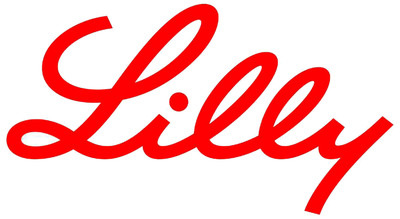Lilly commends ITC ruling cracking down on the unlawful importation and sale of knock-off tirzepatide products that put Americans at risk
Evidence of harmful knockoff tirzepatide escalates
INDIANAPOLIS, December 23, 2024 – In a win for patients, the judge overseeing Lilly’s International Trade Commission case determined that U.S. Customs and Border Protection should prevent the illicit import of knock-off tirzepatide products. The ruling is based on the finding that multiple bad actors importing or selling imported knockoff “tirzepatide” were likely to deceive consumers about the nature and source of their products. Seven entities—located in China, Spain, Texas, Florida, and Iowa—were found to violate federal law because their conduct was likely to deceive consumers about whether their imported “tirzepatide” products were genuine Lilly medicines, and by falsely claiming they had undergone clinical trials, were FDA-approved, or even contained tirzepatide when they did not. The ruling applies to anyone importing illicit knockoff tirzepatide products.
“Most people have no idea that the knockoff compounded drugs they are taking may be coming from dangerous and illicit foreign sources,” said Patrik Jonsson, Executive Vice President of Eli Lilly and Company and President of Lilly Cardiometabolic Health and Lilly USA. “Knockoff medicines, or the active ingredients they contain, are often produced abroad in unregistered facilities that have never been inspected by any regulatory agency.” Sometimes these knockoff medicines—which come from places like China and India—are sold by entities that cannot even legally sell them in their own countries. Lilly has obtained illegal shipments from China claiming to be “tirzepatide” that are deceptively packaged as dog food, tea, and facial masks or hidden inside of a box of t-shirts.
The public should understand the risks of knockoff tirzepatide products and not assume that widespread availability means they are safe. They are not. For example:
- The FDA has repeatedly warned that compounded and counterfeit products can lead to “serious and potentially life-threatening adverse health consequences including infections and sepsis.” In November, the FDA alerted patients about tirzepatide products from a licensed California compounder that “used non-sterile ingredients” and “took no steps to sterilize them.”
- Lilly continues to find knockoff tirzepatide products contaminated with bacteria, high endotoxin levels, and high impurity levels.
- Lilly has also identified products with dangerous potency issues. Some of the knockoff tirzepatide Lilly tested contained more than represented, which could cause patients to overdose. Almost half of the knockoff tirzepatide that Lilly tested had potency below the amount listed on the label, and some contained no tirzepatide at all.
- ABC recently reported that it tested semaglutide and tirzepatide products purchased online and found that some samples had none of the active ingredient while other samples had 250% of the potency advertised.
- The Tennessee Drug Task Force recently reported that counterfeit tirzepatide was being sold directly to unsuspecting patients at med-spas.
Foreign regulators and patient advocacy groups have also been sounding the alarm about the unique risks posed by unapproved tirzepatide and other incretins. Earlier this year, Australia completely banned compounded incretins due to their threat to patient safety. More recently, healthcare regulators in South Africa, Brazil, and Ireland have warned patients against using these unapproved knockoffs. And in December, the American Diabetes Association published guidance recommending that patients not use compounded incretin products “due to uncertainty about their content and resulting concerns about safety, quality, and effectiveness.”
“The ITC order is an important step toward stopping bad actors who put patients at risk and it validates the serious concerns that Lilly has long raised about counterfeit and compounded tirzepatide knockoffs,” continued Jonsson. “Patient safety remains Lilly’s top concern, and we will continue to pursue appropriate legal avenues against these bad actors. But this is not a problem that Lilly can solve alone. We continue to call upon state and federal regulators to take decisive action against those who threaten the health and wellbeing of Americans."

Refer to: Antoinette Forbes; forbes_antoinette@lilly.com; 202-713-4692
George Hartman; ghartmann@bullpenstrategygroup.com; 402-669-9826
